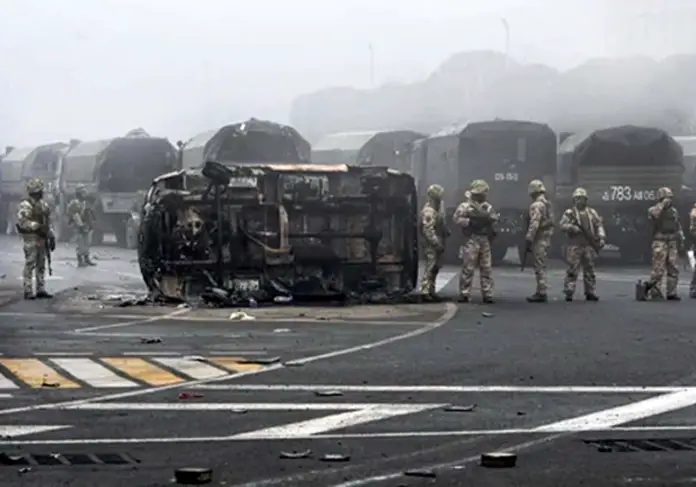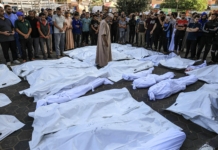Kazakhstan’s largest city, Almaty, has become the scene of violence with the president asserting that calm had returned after a brutal suppression of protests against the current government.
Gunshots were allegedly heard in Almaty, the focus of demonstrations fuelled by an increase in oil prices.
Twenty six armed offenders and 18 law enforcement officials were the casualties to date in the violence, according to the Interior Ministry.
Moscow has sent troops at the president’s appeal.
Not a lot of reliable news was arriving from the country and online services were sporadic. Bulletproof personnel vehicles and soldiers could be witnessed in the major square in the city as per Reuters.
The Interior Ministry stated that people in excess of 3000 had been detained while domestic media stated that roadblocks had been established all over the nation.
Kazakh President Kassym-Jomart Tokayev stated in remarks on Friday that governmental order had been returned to all areas of the state and local administrators were in charge of the situation.
He accused internationally-trained extremists for the chaos without offering any proof, stating that the crackdowns would carry on till the terrorists were totally wiped out.
The president requested the Moscow-guided Collective Security Treaty Organization (CSTO) for backup as the demonstrations intensified. The grouping consists of Russia, Kazakhstan, Kyrgyzstan, Tajikistan, Armenia and Belarus.
The international force allegedly delivered approximately 2,500 troops to Almaty. The CSTO stated that the soldiers were a peacebuilding force and would defend governmental and army buildings. They would remain in Almaty for many days or more, according to Russian media.
The violence became bloody following President Tokayev’s firing of his government on Wednesday in an attempt to divert the protests. He also sacked his strong forerunner, Nursultan Nazarbayev, who had been engaged in a law enforcement responsibility after resigning as president.







